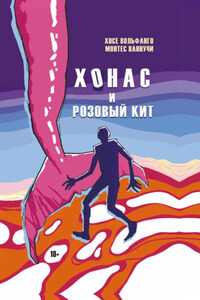This novel is entirely a work of fiction. The names, characters and incidents portrayed in it are the work of the author’s imagination. Any resemblance to actual persons, living or dead, events or localities is entirely coincidental.
HarperVoyager An imprint of HarperCollinsPublishers Ltd. 1 London Bridge Street London SE1 9GF
www.harpercollins.co.uk
First published in Great Britain by Simon and Schuster UK 2007
Copyright © Guy Gavriel Kay 2007
Guy Gavriel Kay asserts the moral right to be identified as the author of this work
A catalogue record for this book is available from the British Library
All rights reserved under International and Pan-American Copyright Conventions. By payment of the required fees, you have been granted the non-exclusive, non-transferable right to access and read the text of this ebook on-screen. No part of this text may be reproduced, transmitted, down-loaded, decompiled, reverse engineered, or stored in or introduced into any information storage and retrieval system, in any form or by any means, whether electronic or mechanical, now known or hereinafter invented, without the express written permission of HarperCollins ebooks
HarperCollinsPublishers has made every reasonable effort to ensure that any picture content and written content in this ebook has been included or removed in accordance with the contractual and technological constraints in operation at the time of publication
Source ISBN: 9780007342037
Ebook Edition © APRIL 2010 ISBN: 9780007352241 Version: 2016-10-03
The woods came to the edge of the property: to the gravel of the drive, the electronic gate, and the green twisted-wire fence that kept out the boars. The dark trees wrapped around one other home hidden along the slope, and then stretched north of the villa, up the steep hill into what could properly be called a forest.
The wild boar—sanglier—foraged all around, especially in winter. Occasionally there might be heard the sound of rifle shots, though hunting was illegal in the oak trees and clearings surrounding such expensive homes. The well-off owners along the Chemin de l’Olivette did what they could to protect the serenity of their days and evenings here in the countryside above the city.
Because of those tall eastern trees, dawn declared itself—at any time of year—with a slow, pale brightening, not the disk of the sun itself above the horizon. If someone were watching from the villa windows or terrace they would see the black cypresses on the lawn slowly shift towards green and take form from the top downwards, emerging from the silhouetted sentinels they were in the night. Sometimes in winter there was mist, and the light would disperse it like a dream.
However it announced itself, the beginning of day in Provence was a gift, celebrated in words and art for two thousand years and more. Somewhere below Lyon and north of Avignon the change was said to begin: a difference in the air above the earth where men and women walked, and looked up.
No other sky was quite what this one was. Any time of year, any season: whether a late autumn’s cold dawn or midday in drowsy summer among the cicadas. Or when the knife of wind—the mistral—ripped down the Rhone valley (the way soldiers had so often come), making each olive or cypress tree, magpie, vineyard, lavender bush, aqueduct in the distance stand against the wind-scoured sky as if it were the first, the perfect, example in the world of what it was.
Aix-en-Provence, the city, lay in a valley bowl west of the villa. No trees in that direction to block the view from this high. The city, more than two thousand years old, founded by Romans conquering here—surveying and mapping, levelling and draining, laying down pipes for thermal springs, and their dead-straight roads—could be seen on spring mornings like this one crisply defined, almost supernaturally clear. Medieval houses and modern ones. A block of new apartment buildings on a northern slope, and—tucked into the old quarter—the bell tower of the cathedral rising.
They would all be going there this morning. A little later than this, but not too much so (two alarm clocks had gone off in the house by now, the one woman was already showering). You didn’t want to linger of a morning, not with what they were here to do.
Photographers knew about this light.
They would try to use it, to draw upon it as someone with a thirst might have drawn from an ancient well—then again at twilight to see how doorways and windows showed and shadowed differently when the light came from the west, or the sky was blood-red with sunset underlighting clouds, another kind of offering.














